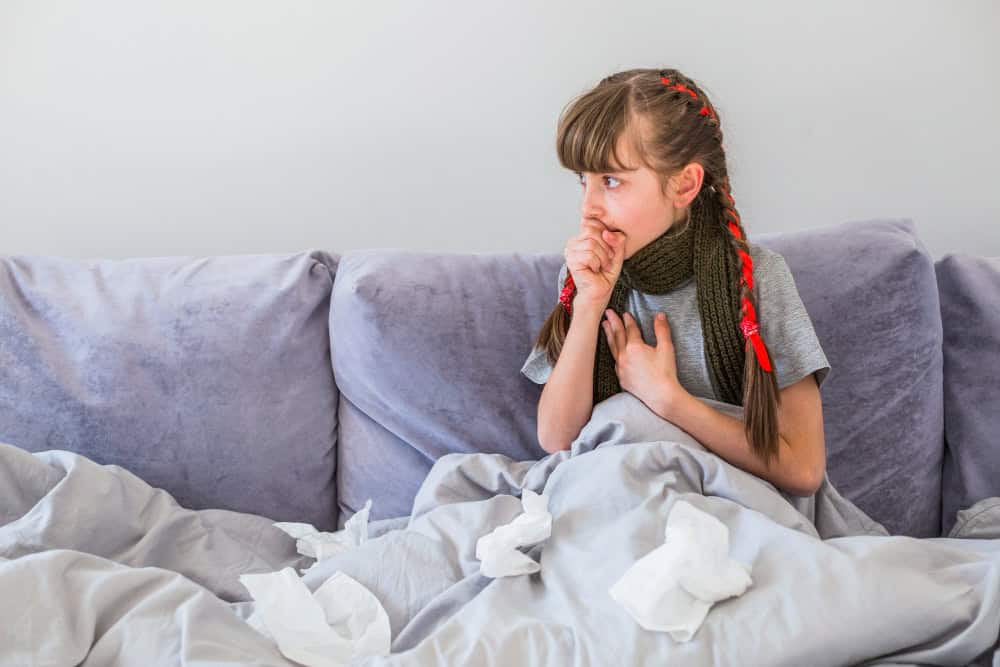Bronchiolitis is a common respiratory illness among infants. One of its symptoms is trouble breathing, which can be scary for parents and children. Read more to learn about bronchiolitis, its causes, signs, and symptoms.
WHAT IS BRONCHIOLITIS?
Bronchiolitis is an infection that causes the small breathing tubes of the lungs (bronchioles) to swell. This blocks airflow through the lungs, making it hard to breathe. It occurs most often in infants because their airways are smaller and more easily blocked than in older children. Bronchiolitis is not the same as bronchitis, which is an infection of the larger, more central airways that typically causes problems in adults.
WHAT CAUSES BRONCHIOLITIS?
Bronchiolitis is caused by one of several respiratory viruses such as influenza, respiratory syncytial virus (RSV), parainfluenza, and human metapneumovirus. Other viruses can also cause bronchiolitis.
Infants with RSV infection are more likely to get bronchiolitis with wheezing and difficulty breathing. Most adults and many older children with RSV infection only get a cold. RSV is spread by contact with an infected person’s mucus or saliva (respiratory droplets produced during coughing or wheezing). It often spreads through families and child care centers.
WHAT ARE THE SIGNS AND SYMPTOMS OF BRONCHIOLITIS?
Bronchiolitis often starts with signs of a cold, such as a runny nose, mild cough, and fever. After a day or two, the cough may get worse and the infant will begin to breathe faster.
The following signs may mean that the infant is having trouble breathing:
- He may widen his nostrils and squeeze the muscles under his rib cage to try to get more air in and out of his lungs.
- When he breathes, he may grunt and tighten his stomach muscles.
- He will make a high-pitched whistling sound, called a wheeze, each time he breathes out.
- He may have trouble drinking because he may have trouble sucking and swallowing.
- If it gets very hard for him to breathe, you may notice a bluish tint around his lips and fingertips. This tells you that his airways are so blocked that there is not enough oxygen getting into his blood.
If your baby shows any of these signs of troubled breathing, call your child’s doctor.
WHEN TO CALL YOUR PEDIATRICIAN
Your child may become dehydrated if he cannot comfortably drink fluids. Call your child’s doctor if your baby develops any of the following signs of dehydration:
- Drinking less than normal with the following signs
- Dry mouth
- Crying without tears
- Urinating less often than normal
Bronchiolitis may cause more severe illness in children who have a chronic illness. If you think your child has bronchiolitis and your child has any of the following conditions, call your child’s doctor:
- Cystic fibrosis
- Congenital heart disease
- Chronic lung disease (seen in some infants who were on breathing machines or respirators as newborns)
- Immune deficiency disease (like acquired immunodeficiency syndrome [AIDS])
- Organ or bone marrow transplant
- A cancer for which he is receiving chemotherapy
Understanding bronchiolitis and recognizing its symptoms early can make a significant difference in your child’s health. If you suspect your child has bronchiolitis or if they exhibit any concerning signs, don’t hesitate to seek professional medical advice. LaTouche Pediatrics is here to provide the expert care and guidance your family needs. Contact us today to schedule an appointment or speak with one of our pediatric specialists. Your child’s health and well-being are our top priority, and we are dedicated to supporting you every step of the way.

